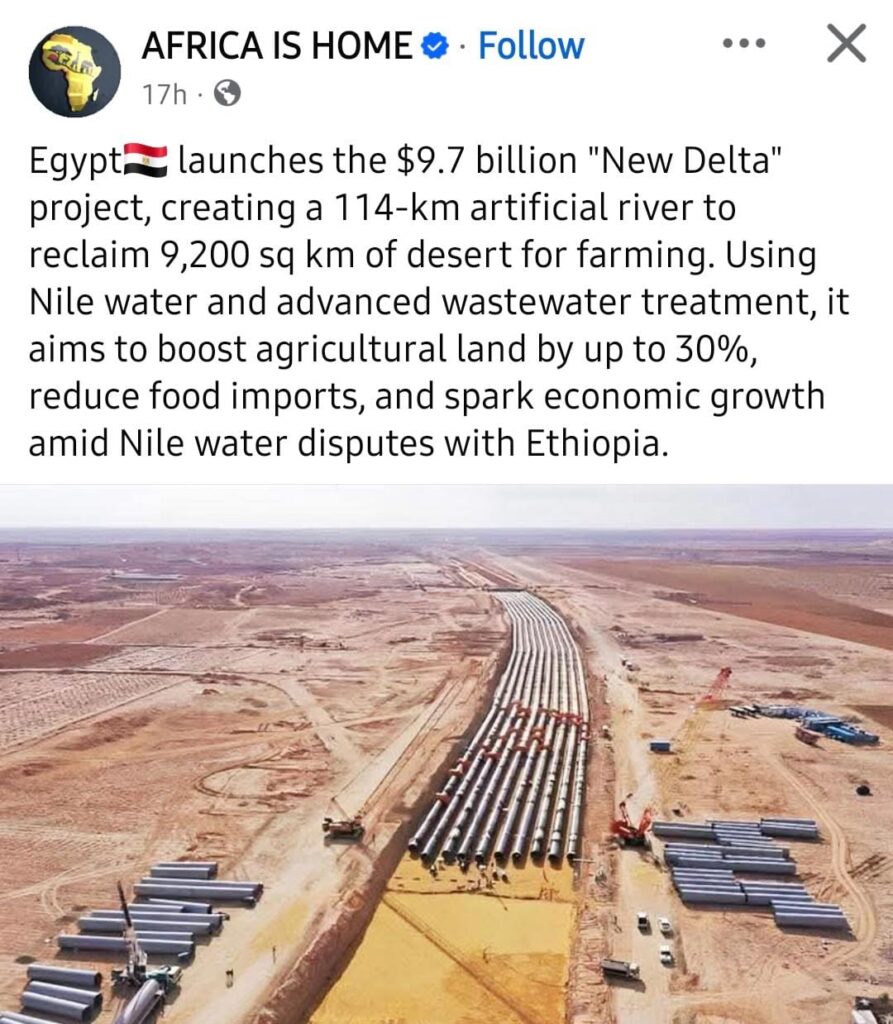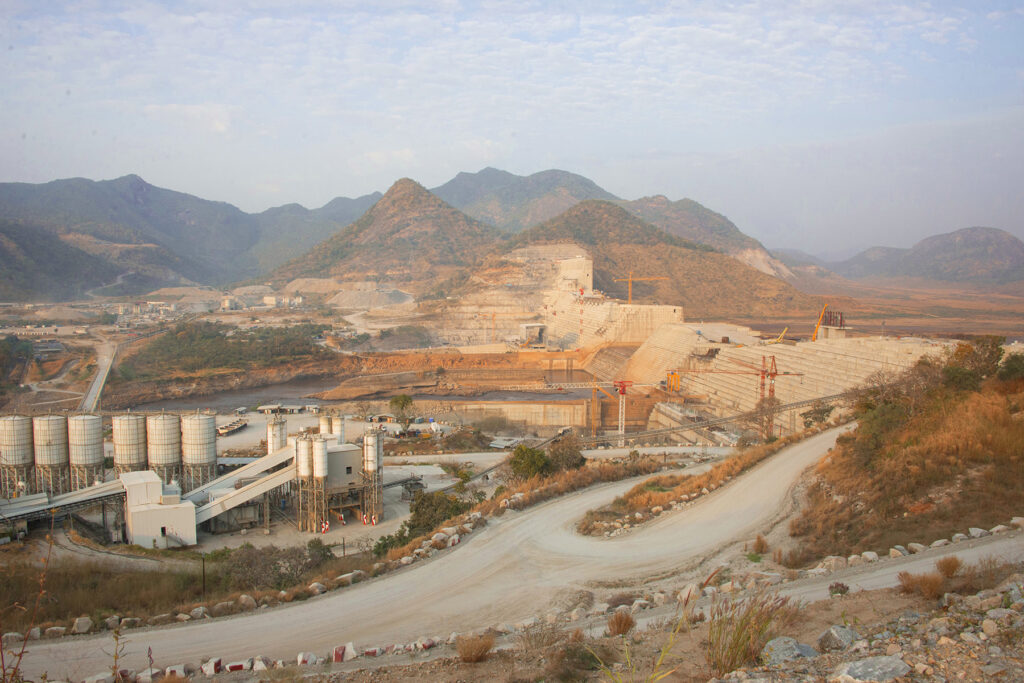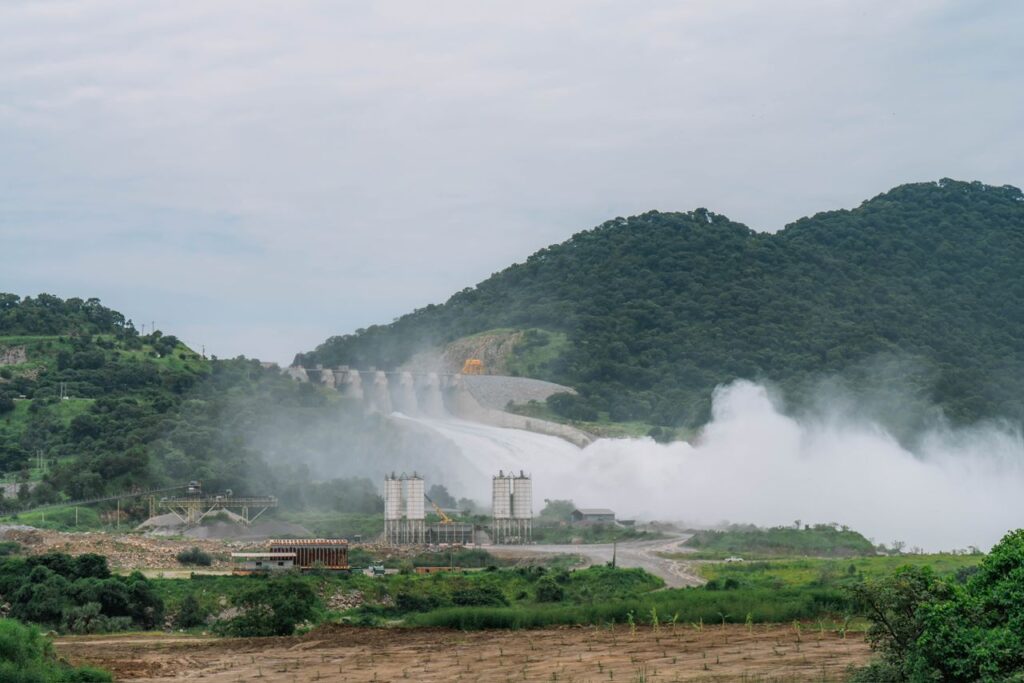Mekelle፡Telaviv, Nairobi, Pretoria, London, (Tigray Herald).
Water, Power, and Pride: The Grand Ethiopian Renaissance Dam and the End of Colonial Nile Politics
Executive Summary
The Grand Ethiopian Renaissance Dam (GERD) is far more than a hydroelectric facility; it is a continental proclamation of African capability, sovereignty, and self-reliance. Built without foreign conditional financing and funded predominantly through domestic contributions, GERD is atestament to Ethiopia’s determination to secure its development destiny, harness its natural resources, and inspire African states to pursue strategic infrastructure projects free fromneo-colonial influence.

For Ethiopia, GERD embodies decades of ambition to achieve energy independence, exportsurplus electricity to the region, and position itself as a continental leader. For Egypt, however, itrepresents a direct challenge to a century-old Nile water allocation system enshrined incolonial-era treaties that granted Cairo disproportionate control despite Ethiopia contributing approximately 85% of the river’s flow. Egypt’s aggressive rhetoric framing GERD’s completion as a “point of no return” is shapedless by hydrological necessity and more by geopolitical anxiety, domestic political calculations,and declining influence in the Middle East and North Africa.
This stance is further underminedby Egypt’s largely untapped groundwater reserves, particularly the Nubian Sandstone Aquifer System.This analysis examines GERD’s strategic significance, Egypt’s political maneuvers, the legacyof colonial Nile treaties, Ethiopia’s maritime ambitions, and the wider regional security dynamics,including Cairo’s Gaza policy. It concludes with recommendations for Ethiopian diplomacy,African Union mediation, and international engagement.
- GERD as a Continental Turning Point
African Self-Reliance in ActionGERD’s financing through Ethiopian bonds, donations, and taxation makes it one of the few African megaprojects built entirely without World Bank or IMF involvement. Symbol of SovereigntyBy asserting its right to utilize the Nile’s headwaters, Ethiopia directly challenges the legitimacyof colonial-era water agreements that excluded upstream states. Catalyst for Regional IntegrationWith a projected output of over 5,000 MW, GERD will enable Ethiopia to become an energyexporter to Sudan, Djibouti, Kenya, and potentially further afield fostering economic interdependence and stability.

- Egypt’s “Big Noise” and Political Calculations
Egypt’s resistance is driven by three primary factors: Colonial Legacy DependenceCairo’s water security has been anchored in the 1929 Anglo-Egyptian Treaty and the 1959 Egypt–Sudan Agreement, both of which ignored Ethiopia’s rights. Domestic Political Consumption Amid economic crises, high debt, and public discontent, GERD serves as a unifying nationalist issue that diverts attention from internal challenges. Eroding Regional Influence Egypt’s traditional dominance in the Arab world and Africa has diminished, challenged by Gulfstates’ economic assertiveness and Ethiopia’s rising profile in the Horn of Africa.

- Egypt’s Water Reality vs. Political Narrative
Despite presenting itself as entirely Nile-dependent, Egypt possesses substantial alternative water resources:Nubian Sandstone Aquifer System (NSAS)Largest known fossil aquifer globally, holding an estimated 150,000 km³ of groundwater. Shared with Sudan, Libya, and Chad; underutilized for strategic consumption. Renewable AquifersThe Nile Delta and Moghra aquifers store significant renewable water volumes.Egypt’s long-term water security challenges stem more from management ineficiencies and technological lag than from upstream developments like GERD a fact Cairo rarely acknowledges in public discourse.
- Ethiopia’s Red Sea ImperativeHistorical Connection
Ethiopia maintained maritime access through much of its modern history, using Red Sea portsto integrate into global trade networks. Strategic SignificanceAccess to the Red Sea enables economic diversification, the establishment of naval capacity,and the projection of regional influence. Egypt’s opposition to Ethiopia’s growing geopolitical reach symbolized by GERD and future maritime access agreements reflects concern over losing strategic primacy in the region.
- Colonial-Era Nile Treaties: Dead or Alive?
1929 Anglo-Egyptian Treaty – Granted Egypt veto authority over upstream projects and allocated nearly all Nile waters to Egypt and Sudan. 1959 Egypt–Sudan Agreement – Divided the Nile’s entire average annual flow between the two countries, excluding all other riparian states. Ethiopia’s Position Considers both treaties null and void, citing exclusion from negotiations despite being the Nile’s primary source nation. For Ethiopia and other upstream states, the treaties are relics of colonial imbalance,incompatible with modern principles of equitable and reasonable water use.
- The Gaza Factor in Egyptian Calculations
Egypt’s GERD policy cannot be separated from its regional security environment: Sinai Vulnerability The Gaza conflict raises fears of Palestinian displacement into the Sinai Peninsula, a scenario Cairo seeks to avoid at all costs. Economic Pressure War-related disruptions exacerbate Egypt’s inflation, food security issues,and foreign debt crisis. GERD becomes a convenient external adversary to rally domestic support and project political resolve.

- Strategic Outlook and Recommendations
For Ethiopia Sustain proactive engagement with downstream states while rejecting the legitimacy ofcolonial-era water treaties. Accelerate cross-border power trade agreements to lock in GERD’s regional economic benefits. Position GERD as an African success story of self-reliance and cooperative development. For the African Union Promote GERD as a precedent for intra-African dispute resolution over shared resources. For International Partners Support a basin-wide water-sharing framework grounded in present-day hydrology, population needs, and sustainable development principles.
Conclusion
The Grand Ethiopian Renaissance Dam is not only an engineering achievement but a decisive turning point in dismantling colonial hydropolitics in Africa. It represents Ethiopia’s challenge to an entrenched order that privileged downstream states while marginalizing upstream rights. As Ethiopia prepares for its GERD completion ceremony, the choices made by Cairo, AddisAbaba, and the wider African diplomatic community will determine whether the Nile becomes asource of shared prosperity or renewed confrontation. The coming months especially Ethiopia’s planned completion ceremony will mark ahistoric pivot point. Whether this pivot leads to cooperative basin management or entrenched confrontation will shape the geopolitics of the Nile for decades.
Prepared by: Horn of Africa Geopolitical Review Regional & International Security,Intelligence, and Diplomatic Experts and Tigray Herald Board.





